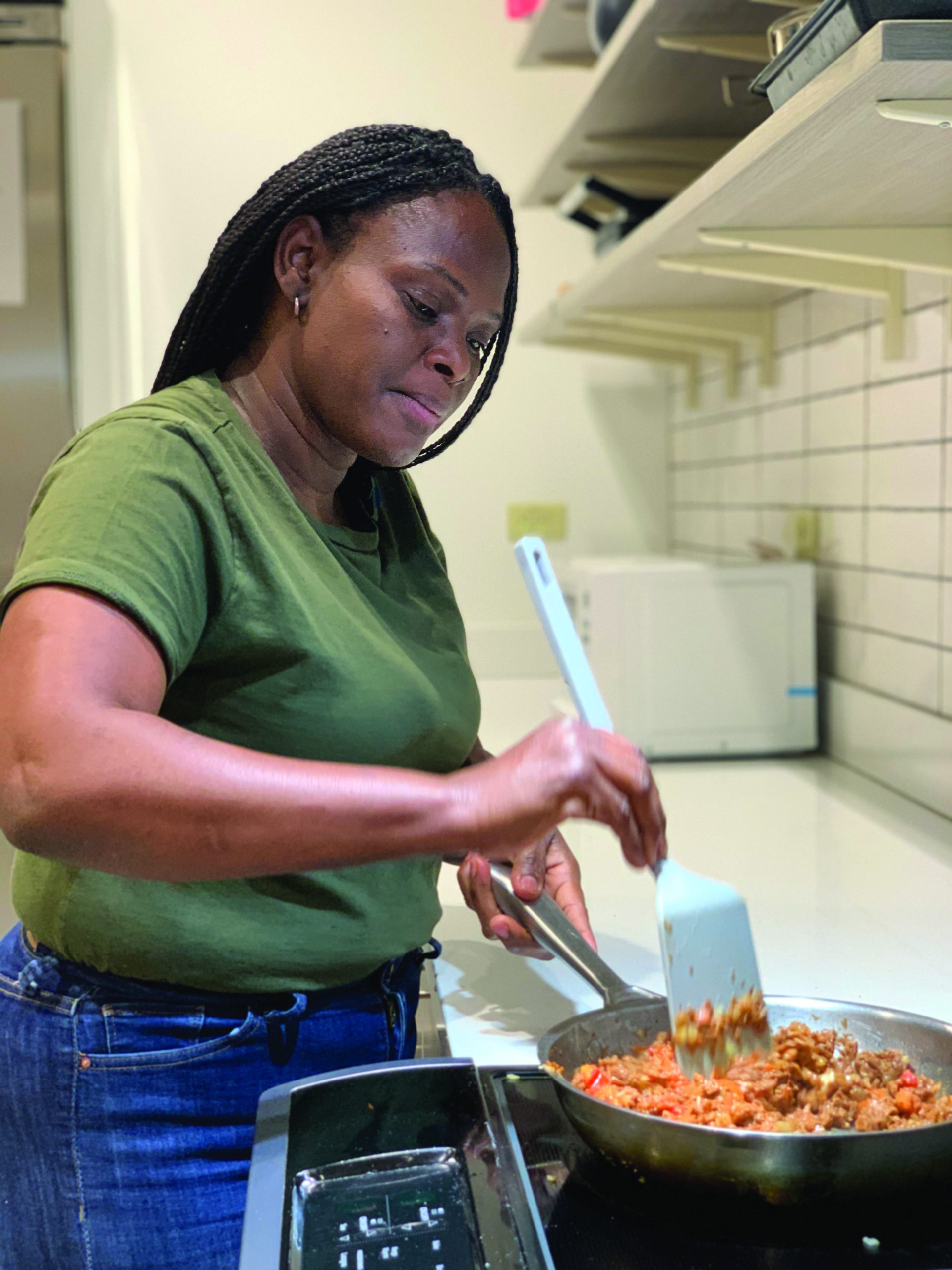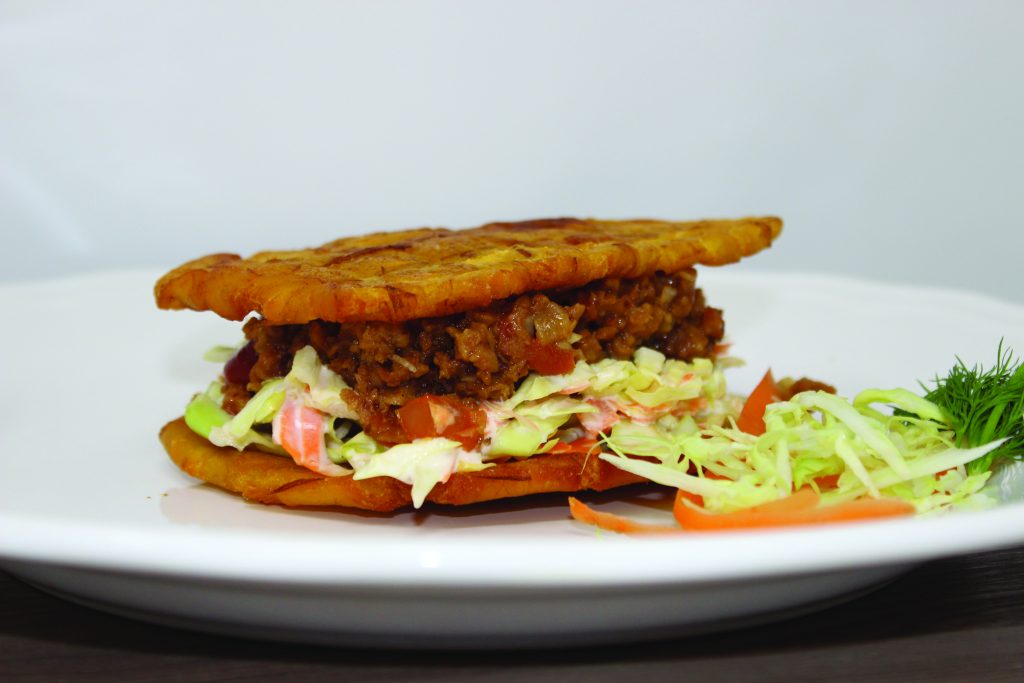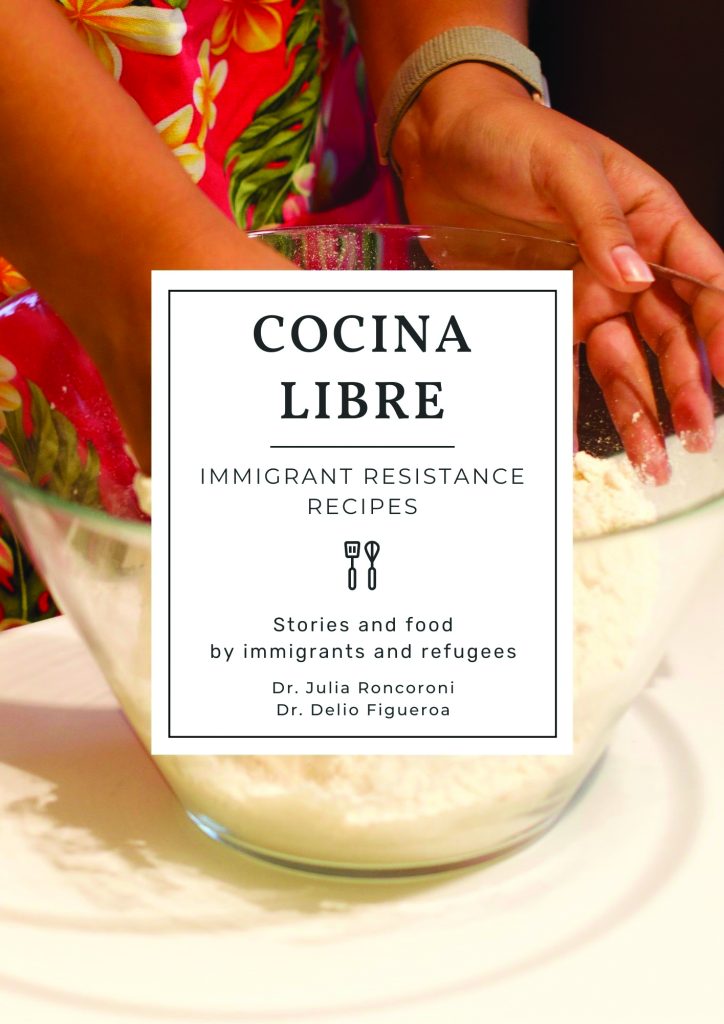
Patacónis a simple plantain sandwich with savory fillings favored by Venezuelan families. For Julia Roncoroni, a psychologist and associate professor at the University of Denver, dishes like patacón can help humanize the immigrants and refugees who came to Colorado from across the planet.
Her new cookbook, Cocina Libre: Immigrant Resistance Recipes, puts faces and names to Front Range immigrants, including people who were held at the immigrant detention center in Aurora.
The potato vareniki recipe is from Tatiana Stratilat, a native of Kiev, Ukraine. Afsanah Noori of Farak, Afghanistan, shares her kotlet kachaloo. Other cooks from Denver to Fort Collins contributed recipes representing Mexico, Ethiopia, El Salvador and Colombia, intertwined with personal narratives.

The patacón recipe was contributed by Yraima Ylarraza, a native of San Felipe, Venezuela. In the book, she explains her journey to the U.S. through one of the world’s most dangerous migration routes.
“We came through the ‘green paths,’ as they are called, through the Darién (Gap). At one point, my knee swelled up and I cried because I thought, ‘I’m not going to make it out of here with my daughters.’ It wasn’t easy, but we made it.”
Creating the cookbook, which is published in both Spanish and English, turned out to be a supersized labor of love for Roncoroni and her co-author and partner, Delio Figueroa. Despite the couple’s home cooking experience — as well as brewing beer and making their own yogurt, bread and cheese — the cookbook expanded their culinary worldview. The couple went to Lakewood Public Library and brought home a “mountain” of cookbooks to study.

“My thinking was: ‘I don’t really know how to cook or take photos of food or anything about cookbooks,’” Roncoroni says. “But you roll up your sleeves and learn. We did about half the recipes in 2019 but had to stop because of COVID,” Roncoroni says. “We couldn’t sit down and eat with people. A lot of our community cooks from the heart, not from the book.”
The stories behind each recipe emerged during meals between the professor and the cooks at various homes. Roncoroni says that is also the best way to appreciate the recipes: by gathering around the table and talking.
“We have an eight-year-old and a three-year-old,” she says. “They came with us to our dinners with the cooks. It’s been such a good experience because they sat at the table and heard people share their stories.
“These immigrants were saying, ‘I don’t think people understand me here.’ We think that food is one way they can have this conversation.”
Proceeds from the book benefit the Colorado Immigrant Rights Coalition. English and Spanish versions of Cocina Libre: Immigrant Resistance Recipes can be ordered at juliarpsychology.com/cocina-libre
